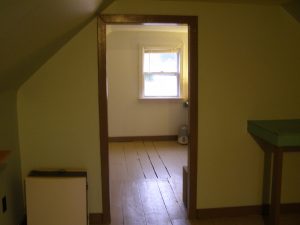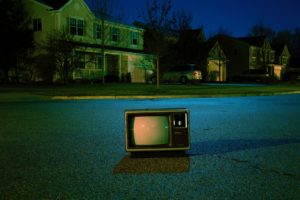by Jenny Rose | Feb 12, 2022 | A Flourishing Woman, The Journey
I’ve written before about rewriting our personal narratives. I’m revisiting the idea, this time in terms of rewriting the past.
Pete Walker’s material on complex post-traumatic stress disorder suggests revisiting old traumas remaining in our memory as painful, nonhealing wounds, and rewriting. He talks about it in terms of time travel. One goes back, as an adult, into memories of childhood and enters the scene as a new character, creating a new and different narrative. Our adult selves can defend our child selves, shield them, help them explain themselves, provide comfort to them, and, if needed, remove them before whatever terrible experience occurred.

Photo by Angelina Litvin on Unsplash
Intrigued, I tried this method, and I was shocked, though I know the power of stories, at how well it worked and how much fun it was. Not only has it helped me heal from past trauma, it also strengthens my ability now to automatically stay on my own side and defend myself.
Seth Godin also talks about this concept. His language is “rewriting the script.” Same idea, slightly different presentation. Godin is business oriented, while Walker is psychology oriented.
Godin suggests, instead of saying to ourselves “here we go again,” we simply rewrite the script this time, which means we throw away our expectations and take each experience as a fresh one, rather than another terrible iteration of something in our past.
This is powerful for me as we navigate the process of moving house. I’ve done it more times before than I want to count, and I’ve always found it deeply traumatic, but this time is different. In spite of broken contracts, changing timelines, obstructions and reversals, and the usual financial and physical stresses, I’m managing to stay grounded and balanced. It feels like a rough patch, for sure, but I don’t feel traumatized. I have moments of amusement and even more moments of curiosity. What on earth will happen next? How will this all work out? Where will I be sitting in 6 months?
Old traumas and wounds are just that – old. We don’t have to insist new, similar experiences cut as deeply. It is a choice, although not an obvious one. We could just tear up our old scripts, the ones that hurt us, the ones that never work out for us, the ones filled with fear and heartbreak, and write a new one. Now does not have to be the same as then.
In yet another way to think about this, I came across advice from a writer on how to appreciate one’s progress. She, too, suggested time travel. If we feel stuck and as though we’re making no progress, and never have, and never will, and what person X told us way back when we were children, that we’ll never amount to anything, seems a curse we can never lift, we can sit quietly with ourselves and think back a year, or five, or ten. Stepping back helps us gain perspective and see exactly how far we’ve come, how much we’ve learned, how much we’ve grown. What if we went back, in imagination, to cheer on the self we were a year ago, whispering to them of all the wonderful progress ahead?
Scripts and storylines can be changed. We don’t have to give them our power. It’s so easy to forget that. It takes an act of presence and will to change the script and reclaim our power, but we can let go of our limiting expectations and beliefs and allow ourselves a different kind of experience. Not here we go again, but here’s a new experience – I wonder what will happen?
Sometimes all we need to do is shift our gaze from the hopeless and frightening places where we have no power and focus on the places we do. If we can stay there, rest there, live there, the chaos and tumult, though unpleasant, won’t knock us down and trample us. Such times pass by, pass over without traumatizing us, and we’ll come out on the other side more resilient than ever.

Photo by Leon Liu on Unsplash
by Jenny Rose | Feb 5, 2022 | Choice, Power
I’m doing it again. Dissenting. Doubting. Questioning the status quo. Looking for new or buried information.
Thinking critically, in other words.
I know unthinking conformity is convenient, but I’ve always been an inconvenient sort of person.
It’s lonely.
This time it’s about diet, and fat, and cholesterol.
I’ve written several posts on this subject before. Here’s the first one.

Photo by Lukas Budimaier on Unsplash
I know it’s all wrong to eat meat and animal fat and stay away from plant-based food of any kind, but it solved my health problems.
I’ve had a lot of bad experience with doctors. For much of my life, I’ve been completely intimidated by doctors or anyone else in authority, especially men. I’m not afraid of blood draws and exams, but unable to speak up for myself, ask questions, or dare to Fail To Please in any way. Which means in and out of the office as fast as possible, making no fuss, not speaking except to answer questions succinctly, never disagreeing, and thanking the doctor extravagantly for their time and trouble, even if (especially if) I felt completely unseen, unheard and unsupported.
(Oh, and desperately minimizing any problems I do have so as not to be a whiner or come across as drug- or attention-seeking. Because it’s bad to need help.)
In short, fawning from the beginning of the appointment to the end.
This experience has meant I avoid health care, aside from well-woman exams and an occasional emergency visit for antibiotics or an injury.
When I have been to the doctor for things like chronic pain, insomnia, depression, and anxiety, I’ve been offered medication rather than information. I don’t want to take long-term medication. I want someone to help me understand what the underlying problem is, not slap a band-aid on it. That means I want to exchange information, which takes time, and ask questions. I want to be given resources and options.
Here in Maine I’ve found a health care provider I like and respect. She’s intelligent, personable, and doesn’t make me feel as though I’m nothing but a nuisance. With her help, I’ve caught up on all appropriate scans, screens, and tests. It’s nice to feel empowered to take care of my own health.
However, part of screenings and tests for women my age have to do with identifying risks for cardiovascular disease, and according to current standards of care I am at risk, solely because of my diet and cholesterol panel.
Current guidelines and standards are built on the longstanding lipid hypothesis, which states diets high in animal fats lead to atherosclerosis, which leads to heart disease. Other, equally longstanding evidence-based data from around the world over a span of decades suggests the opposite, not only that cholesterol is not an indicator of heart disease, but it’s actually protective against it, especially for women. Many doctors, Ph.Ds, and biochemists believe the lipid hypothesis is false and based on a severely flawed original study, which means all the current guidelines (diet and nutrition recommendations and pharmacology to reduce cholesterol) and standards of care built upon it are ineffective, at best. This is validated by staggering and rising rates of obesity, diabetes, heart disease, and other health problems in the American public since the lipid hypothesis began to change diet and nutrition guidelines, food production, and medical care in the 1950s.

Photo by freestocks.org on Unsplash
However, the lipid hypothesis is enormously lucrative for Big Ag, Big Pharma, and food producers, and those entities have frightening wealth and political power, more than enough to successfully stifle any funding for unbiased studies, silence independent scientists researching diet, fat, and cholesterol, and corrupt or bury any data that does not support the lipid hypothesis.
I am not getting my information from Facebook or conspiracy theories. I’ve spent years researching and reading, both in books and online, about diet, fat, and cholesterol. I don’t take the position that current cardiovascular guidelines are wrong, but neither am I convinced they’re right. I don’t know, and I know I don’t know, but the evidence tells me there’s plenty of room for doubt. My experience tells me a high-fat, low-to-no-carb diet is the key to my own health.
I want to have a discussion about it with my healthcare provider. I want to talk about studies. I want to ask questions. I want to be allowed to have doubts and concerns. I want to weigh my overall excellent health and function against numbers that may or may not have much to do with heart disease. I want to share links and be given suggestions for research.
I want to consider the possibility that current standards of care are based on a hypothesis that is incorrect.
I scheduled a phone call to discuss some of my test results. My provider expressed her concern about one particular result and thanked me for an email I had sent her, containing several links and information sources I find useful and interesting.
She was polite. I was polite. But our previously warm and friendly connection had vanished. I don’t believe she read anything I sent. I asked a couple of questions about studies and different ways to assess cholesterol panel results, but she dismissed it all. Flat. Businesslike. Professional.
It was a disappointingly brief conversation. I was clear about what I would and would not do. We came up with a plan. We hung up.
I spent the rest of the day feeling like an extremely anxious, difficult, bad child, waiting for catastrophe because I Failed To Please.

Photo by Ashkan Forouzani on Unsplash
All healthcare workers are under the gun these days. I work in a hospital myself, and come in for my share of politically-motivated bullshit regarding COVID. Healthcare providers are understandably exhausted, burned out, and defensive. I’m probably just one more patient influenced by some crazy ideology on the web, as far as my provider is concerned. She has a standard of care to adhere to that’s clean, clear, and congruent with the organization’s policies and procedures, which are congruent with the American Heart Association and all the other powerful medical organizations’ guidelines. She doesn’t have the time or energy to debate with patients about vaccines, dietary fat and cholesterol, or anything else.
But what if current cardiovascular preventive care is based on bad data? What if the truth has been buried under politics and capitalism for decades? What if I feel in the best health of my life because I am in the best health of my life, and nothing’s wrong, nothing needs fixing?
I don’t want to suffer from heart disease, cancer, or other health problems any more than anyone else does. I value my good health and work hard to eat right and stay fit. I want to learn about my own metabolism and physiology. I don’t want pharmacological fixes for issues that might not even be real problems.
I feel sad and frustrated and very alone. I’m feel as though I’m being punished for being a sceptic, and researching and thinking for myself. I’m back in the familiar pattern of asking questions and having people shut down, or withdraw and withhold.
I suppose at the end of the day we all wind up with ourselves and the best choices we can make with the information and resources we have. I know what the right thing is to do for myself at this point. I might get new information. Things might change. I might make a mistake, or be wrong, and suffer consequences. I’m prepared for all that. Things change. I can change with them.
This time I’m not blaming myself for the way I feel. This time I’m seriously considering the possibility that I’m not broken, but our healthcare system is. I’ll continue to take responsibility for my own health and well-being. I’ll continue to read and research as new data and studies become available for review. I’ll continue to doubt, dissent, question, and seek information.
I cannot blindly follow an organization, a system, or a set of expectations and rules from anyone. Data can be and is misinterpreted. It can be frankly corrupted by politics and capitalism. Much of what I’ve learned in my life I’ve had to unlearn and replace with something more effective. I’ve never been able to understand why we are so resistant to being wrong. How can we ever learn if we can’t be wrong? How can we ever go forward and build on our experience and observations? How can we ever hope to improve anything?
So here I am, skeptical again, and paying the price for it. But I’m going to stay on my side and continue to support my healthcare choices, even if I can’t find professional support. I’m not going to fawn, or let my fear chose for me, or apologize for who I am. I’m going to exercise my power to say yes and no, think critically, and advocate for myself, regardless of the expectations of others.

Photo by Tanja Heffner on Unsplash
by Jenny Rose | Jan 1, 2022 | Power
A week before Christmas, this from Joshua Fields Millburn came to my Inbox. Then, a couple of days later, I read this edgy piece by Tina Lear about erasing our future.
I’ve been thinking about these two pieces of writing as I clean out cupboards, pack, and work on finding a temporary storage unit to help smooth the process of moving house.

To outsource is to obtain something from an outside source. I loved Millburn’s article about outsourcing our happiness because I’ve noticed this, too. We outsource our success. We outsource our sense of style and beauty. We outsource our power in all kinds of ways. We don’t even notice we’re doing it most of the time. What it really amounts to is permanently putting ourselves behind bars.
I had an interaction recently at work that perfectly illustrated outsourcing our power. It was the end of a 10-hour day. I was tired. We were trying to close the pool, which requires several complicated chemical and maintenance tasks. We had some late swimmers we were working around. A woman walked in asking for information about joining. I launched into our well-rehearsed spiel about paperwork, reservations, COVID precautions, and our policies and procedures.
Our population is mostly elderly, and this woman was grey-haired. There’s a lot of information to absorb, and we’re used to people being confused or anxious and needing to ask several questions. We can also anticipate problems with filling out the paperwork correctly, so we show newcomers all the places they’ll need to sign, date, and initial.
She interrupted me abruptly in midflow, saying she was busy and didn’t have time for all this. She didn’t smile. I shut up, handed her the paperwork, and thanked her for coming by. She left and I went back to what I had been doing. I was busy, too.
A half an hour later, on the way home, I realized I was upset. I went back over the interaction to figure out where it had gone wrong. I rarely have interactions like this. I’m usually good with people. Had I said or done something wrong? Had I been impatient or unhelpful or unpleasant in some way?
All at once, I felt as though I’d had a “bad” day at work. I’d screwed it up. It hadn’t gone well.
I had Failed To Please someone. The worst thing that can possibly happen.
I realized, of course, it wasn’t about me. This woman is a stranger. She doesn’t know me well enough to dislike me. I knew I was being oversensitive and I let it go.
She came in a few days later to swim, which means she took her mask off. I recognized her immediately, though she took no notice of me. I watched her as I guarded and noted, once again, how attractive she is. I also noticed how sad she looked. She’s got beautiful bone structure, but she has an air of iron self-control and her face in repose as she enjoyed the warm therapy pool was stoic, her mouth secretive and folded in upon itself. She looks as though she’s suffered in her life, and is determined to bear it with dignity.
It takes one to know one, I thought to myself.
That thirty seconds of interaction with a stranger tilted my whole day. In a moment, I lost my sense of competence and confidence. One interaction erased all the dozens of positive interactions I had and all the things I did right over my 10-hour shift and before.
This is outsourcing our satisfaction and happiness with ourselves and our lives. It puts our power outside us, into the hands of someone else. It doesn’t matter if the someone else is a loved one or stranger.
The second article, by Tina Lear, suggests we consider erasing our stories about the future. She’s coming at it from a minimalist perspective. She realized she was keeping lots of things “in case.” In case collapse comes. In case the power grid fails. In case we suddenly become different people. In case we lose weight. In case things come back into fashion. In case we suddenly love doing something we’ve already tried doing and didn’t love.
This is a big one for me. I always want to be prepared for anything. If I’d had the money and focus, I’d have been a prepper.

I don’t think being prepared is bad. Not at all. In fact, my partner and I are having considerable friction right now around preparing to move. I want to do a little cleaning, a little packing, a little organizing every day. He’s not interested. He won’t be interested until his back is against the wall and then he’ll begin taking action. I can’t work that way. He drives me nuts. He thinks I’m exhausting myself for no reason.
Aren’t relationships fun?
Anyway, Lear is right. When is the future ever what we think it will be? We can’t prepare for all eventualities. (Didn’t I just write something about leaping?) What we can do is be sure we don’t outsource our happiness, our confidence, our sense of self. We can be on our own side. We can validate ourselves and cheer ourselves on when we need it. We can love ourselves, even in the moments when it seems no one else does. Especially in the moments when it seems no one else does.
We can stop scaring ourselves with stories about what might happen in the future and trust we’ll survive and thrive, no matter what does happen, because we haven’t outsourced our happiness, our confidence, or our competence. We may have discarded something we suddenly need, but how serious is that, really? We can buy another. We can borrow it. We can use something else. The sky won’t fall. We’ll figure it out.
Life will go on. Let us be in charge of our own lives rather than outsourcing them to someone else.

Photo by Stephen Leonardi on Unsplash
by Jenny Rose | Dec 4, 2021 | A Flourishing Woman, Minimalism
Asking the right question is powerful. Answering it honestly is a superpower. Good questions unlock doors and windows in our minds and hearts, and honest answers allow light into dark, dank, haunted places within us.

Photo by Craig Whitehead on Unsplash
For me, part of the magic of good questions is the challenge to think bigger and more creatively. Questions help me focus on problem-solving.
Life is all about problem-solving.
So, here are three questions. The first is from Joshua Becker on Becoming Minimalist. The others were inspired by his post:
- If I didn’t have this thing, what would I use instead?
- If I wasn’t doing this activity, what would I do instead?
- If I wasn’t investing my time, energy, and power here, where would I invest them instead?
In the first questions, the thing, whatever it is, may be something you’re not using in the first place. But if you are, or you think you are, or you have, or you think you might need to sometime in the future, ask yourself if you didn’t have it, what would you use in place of it?
If I didn’t have this apple corer, what would I use instead?
A knife.
A good kitchen knife is multipurpose. An apple corer is not.
If I didn’t have a TV habit, what could I do instead?

Photo by Frank Okay on Unsplash
Spend actual face-to-face time with someone. Read a book. Take a walk. Play with pets. Exercise. Play a game. Go outside.
If I wasn’t consumed and exhausted by stress, anxiety, toxic mimics, or unhealthy relationships, what could I have energy for?
Creativity. Spirituality. Learning. Healing. Growth. Healthy connections. Rest.
I don’t suggest a ban on apple corers or TV. These questions are not weapons with which to make ourselves bad and wrong. The point is that asking the questions reminds us we are making choices and gives us a chance to consider whether or not our choices are adding value to our lives and taking us in the direction we want to go.
Do we really need a bigger kitchen to house our collection of apple corers and other gidgets and gadgets that do the work of a good knife?
Do we really need three, or six, or nine different streaming services and a steady diet of however many hours of TV a day?
If we ask and answer these questions intermittently during our day, what might we learn about which activities and objects are useful and valuable and which are not? How would our relationships look through the lens of these questions, beginning with our relationship with ourselves?
How could we engage with subtractive problem-solving?
I would rather have one multipurpose object, tool, or activity than several specialized ones. Simple is easy. Simple is clear. Simple takes less time, money, space, and energy.
Here’s the downside of good questions requiring honest answers:
We might not like the answers.
If we ask, if we answer, we may find out things we don’t want to know, which might be why we’re unconsciously busy spinning our wheels in the first place.
This is the old French story about Bluebeard. Once his young wife looked in the forbidden room and saw all his former headless brides, she couldn’t unsee it. There was no going back.
This kind of self-inquiry is a choice. We may not want to. We may not be willing to. That’s OK. Life has a way of increasing the pressure until we are forced to go in the direction of our fear and resistance. On the other hand, maybe you’re a person with no emotional, physical, or thought clutter. Maybe you have no time-wasting coping mechanisms and habits. Maybe your kitchen drawers are clean, functional, mouse free, and contain nothing but a few useful multipurpose tools you use regularly. Maybe all your relationships are perfectly healthy. Good for you! I’m jealous.
My life (and my kitchen) is messier than that. I spend too much time and energy in non-useful activities, and even more time and energy being hard on myself for it. I worry, and make up stories, and work hard to stay defended and hidden.

Photo by Angelina Litvin on Unsplash
If I didn’t spend time playing online solitaire in an effort to manage uncomfortable feelings or fatigue, what could I do? Write? Take a walk? Relax with a book? Dance? Journal? Talk to a friend? Scrub a floor?
It’s not that solitaire is necessarily bad. The question is, would another activity be better? A walk takes care of exercise; spending time outside; and spending undistracted time with myself or a friend, pet, or loved one. A walk is a multipurpose activity. Solitaire is not.
I need a good kitchen knife. I need to be outside and exercise.
Do I need an apple corer and online solitaire?
(Well, no. But maybe I want them. That apple corer is mine (this is called the endowment effect). I paid good money for it! Maybe I used it once. Maybe I’ll use it again one day. I deserve to relax and take a break now and then. Solitaire is better than TV or a social media habit. It doesn’t hurt anyone. I need some downtime in my day.)
I’m not here to argue with you. I want you to have what you need. I want what I need, too.
Just asking the questions!

Photo by Das Sasha on Unsplash
by Jenny Rose | Nov 27, 2021 | A Flourishing Woman, Creativity
As regular readers know, for several years I’ve been writing fiction. I’m now working on the third book in my series, The Webbd Wheel.

After I finished the first book, The Hanged Man, I had it professionally edited twice. I was looking for a reality check. Was it any good at all? Did I need to begin again?
Much to my surprise, my editor praised it warmly.
This was wonderful, but not at all the same as attracting an agent or publisher. The writing’s quality takes second place to the estimated commercial value of the work in the current publishing business model.
I understand this. Business is business and it’s not personal. However, writers like me have very little ability to compete with writers who are proven money-makers.
Books require paper, which comes from trees. I love books. They’re the mainstay of my existence. Yet neither I nor anyone else will survive if we kill all the trees on this planet. I’m not much of a digital reader, though many people are. I’d like to be in print, but the money required to get into print and the possibility those books will not sell are part of what’s driving the current publishing model, and I don’t want to be decimating trees for books that sit unwanted on a shelf or in boxes.
Traditional publishing, because it’s capitalist, is conservative. There are rules. Unproven writers, in particular, have to follow the conventions.
You may not have noticed, but I’m not very conventional, especially not creatively. According to print publishing conventions, my books are too long for a newbie author. They’re a synthesis of many different cultures and stories, which raises the spectre of cultural appropriation, a hot potato no publisher wants to handle. There are numerous characters and the story is complicated. (Who do I think I am? George R. R. Martin?) There’s erotica, including shapeshifting lovers. There’s paganism. There’s witchcraft and magic. There’s natural systems collapse. There are all the messy aspects of relationship with family, friends, mates, and children.
In short, I want to write without the shackles imposed by the necessity to please most people most of the time and offend no one so millions will buy my work and a publisher makes money.
The conventions are simply too small for me or my imagination to fit into.

Photo by Andrew Loke on Unsplash
This, by the way, is not a surprise. I’ve never fit into conventions. Why did I think I would be successful now?
For years I’ve been submitting my work, collecting rejections, and researching alternative ways to get my writing to readers.
Publishing, like many other things in our world, is changing rapidly. Technology has opened up new and different ways to share written material.
Success, from a traditional publisher’s point of view, is sales. Sales require good marketing and a vast audience. I’ve been told over and over again if I want to be noticed, if I want to be successful, the only path is social media.
Maybe that’s true and maybe it isn’t. I’ve read a lot of books by authors who were writing before social media. I’ve read some really terrible bestsellers that, as far as I’m concerned, should never have been published, but the authors had a big following and fan base on social media and elsewhere. They were popular. They got rich, at least by my standards!
Here’s the thing. I don’t want to write something I wouldn’t read or buy. I don’t want to be a product for the social media platforms, and I don’t want you to be, either. I’m not producing work that appeals to everyone, and that’s okay with me.
I have no ambition to be popular. Useful? Sure. Provocative, as in provoking discussions, questions, new ways to think about problems and issues? Wonderful. Validating? Great. Connecting? Absolutely.
People who rock boats are not popular, and I’m a boat rocker from way back.
I want an audience which finds value in my work. The size of that audience is not my business.
One of the options for digital publishing is an online platform called Substack, which was created especially for writers. Several well-known authors who are in print publish there, and some have started there and subsequently been “discovered” and published conventionally. Substack allows a writer to deliver serial fiction directly to readers. No middlemen. No advertising. A free or low-cost monthly subscription that can be cancelled at any time with no book to rehome, give away, or collect dust.
This platform supports authors and readers engaging in discussion and creating community. It allows writers to take readers behind the scenes of the creative writing process, not necessarily as teachers, though there are plenty of guides and teachers on Substack, but as playmates. As equals and peers who live in the same world and share the human experience.

I’ve spent the last two or three weeks creating a site on Substack called A Stone, a Web, a Story. This weekend, after I post this in Harvesting Stones on Saturday, I will publish on Substack on Sunday. The starting posts will be the first 10 pages of my first book, The Hanged Man, and a post specifically about creating The Webbd Wheel series. E-mail subscribers to Harvesting Stones will receive an e-mail from A Stone, a Web, a Story every week when I post there. You can opt out of my e-mail list for either site at any time.
I’ve added a new category to the home page on Harvesting Stones below the image links for the blog and resources. It’s titled The Webbd Wheel. A click will take you to a page that tells you a little about the books and provides a link to A Stone, a Web, a Story. You’ll also find The Webbd Wheel on the menu at the top of every page on Harvesting Stones.
If you want to check out A Stone, a Web, a Story, follow this link. Remember, the first post won’t go up until Sunday, 11/28. I’ll continue to publish here as usual.
As I write, it’s Thanksgiving. I am thankful for every single person reading this. When I began blogging in the summer of 2016, I could not have imagined the journey I was embarking upon. Now, more than 200 posts and two books later, I’ve made connections, learned, grown, laughed, cried, and been touched by your comments and questions. I’m proud to begin sharing my fiction with you and I hope you’ll join me and other readers on Substack as I add posts and features to A Stone, a Web, a Story. Thank you.

Photo by Josh Applegate on Unsplash















